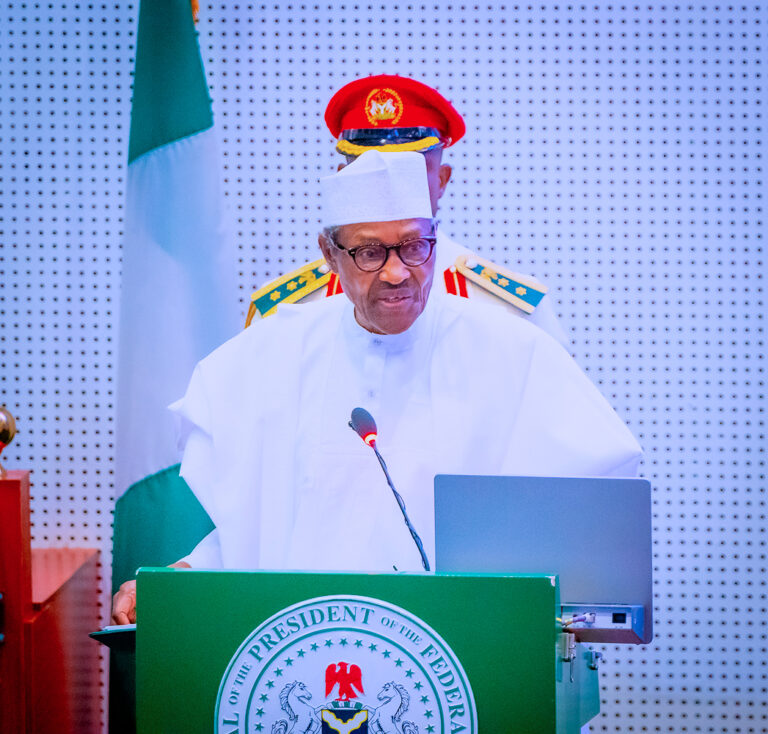President Muhammadu Buhari on Friday presented before the two chambers of the National Assembly, a record N20.51 trillion proposed budget for the 2023 financial year.
The N20.51 trillion budget which is the highest so far in the nation’s history, is the last to be presented by the president before his tenure elapses.
According to the president, this 8th financial blueprint of his administration is tagged the budget of Fiscal Sustainability and transition.
Buhari while addressing members of the parliament noted that the 2023 transition budget was designed to address critical issues and lay a solid foundation for the incoming administration.
The president said he believes that based Based on these fiscal assumptions and parameters, total federally-collectible revenue is estimated at 16.87 trillion Naira in 2023.
Further stated that the total federally distributable revenue is estimated at 11.09 trillion Naira in 2023, while total revenue available to fund the 2023 Federal Budget is estimated at 9.73 trillion Naira.
This he said includes the revenues of 63 Government-Owned Enterprises.
The president also disclosed that oil revenue is projected at 1.92 trillion Naira, Non-oil taxes are estimated at 2.43 trillion Naira, FGN Independent revenues are projected to be 2.21 trillion Naira.
Other revenues total 762 billion Naira, while the retained revenues of the GOEs amount to N2.42 trillion Naira.
In his speech, the president stressed that the 2023 Appropriation Bill aims to maintain the focus of MDAs on the revenue side of the budget and greater attention to internal revenue generation.
“Sustenance of revenue diversification strategy would further increase the non-oil revenue share of total revenues,” President Buhari opined.
While N2.42 trillion Naira would be for spending by Government-Owned Enterprises, the proposed 20.51 trillion Naira 2023 expenditure comprises:
Statutory Transfers of N744.11 billion; Non-debt Recurrent Costs of N8.27 trillion; Personnel Costs of N4.99 trillion; Pensions, Gratuities and Retirees’ Benefits of N854.8 billion; Overheads of N1.11 trillion; Capital Expenditure of N5.35 trillion, including the capital component of Statutory Transfers; Debt Service of N6.31 trillion; and Sinking Fund of N247.73 billion to retire certain maturing bonds.
The president said the government expects a total fiscal operations of to result in a deficit of 10.78 trillion Naira.
This he noted represents 4.78 percent of estimated GDP, above the 3 percent threshold set by the Fiscal Responsibility Act 2007.
“As envisaged by the law, we need to exceed this threshold considering the need to continue to tackle the existential security challenges facing the country,” Buhari explained.
Speaking further, the president revealed that the government plans to finance the deficit mainly by new borrowings totalling 8.80 trillion Naira, 206.18 billion Naira from Privatization Proceeds and 1.77 trillion Naira drawdowns on bilateral and multilateral loans secured for specific development projects and programmes.

